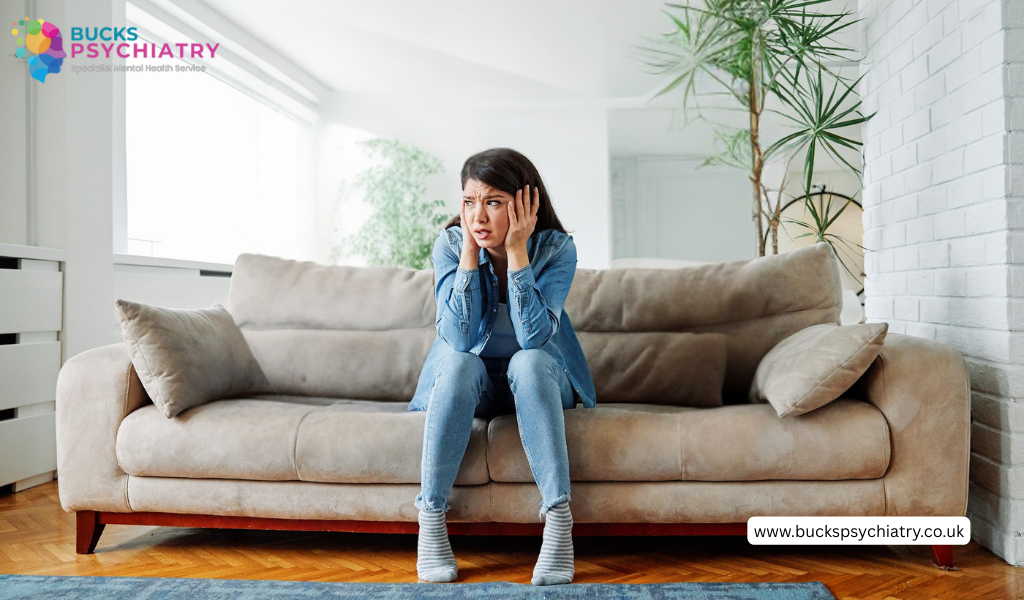When most people picture ADHD, they still think of a young boy in a classroom, tapping his foot and staring out the window. That narrow image has left many women in the dark about their own struggles. Across London and the rest of the UK, thousands of women are quietly living with ADHD — and many don’t even realise it.
They call themselves disorganised. They think they’re too emotional, forgetful, or bad at staying on top of life. But those aren’t personal flaws; they could be signs of ADHD. The problem is, if no one tells you what to look for, you end up blaming yourself for years.
Explore More Blogs: What Is ADHD, And What Are The Symptoms Of ADHD?
Why ADHD in Women Often Gets Missed?
Women’s ADHD can be subtle. It’s not always the obvious “hyperactive” type. You might not be bouncing off the walls, but you could be juggling a constant storm in your head. Thoughts race, emotions flip, and everyday tasks feel harder than they should.
On the outside, you might look like you’re coping — work gets done, the bills are paid, the kids are fed. But it can take an incredible amount of hidden effort to keep it all together. That’s why so many women go undiagnosed until adulthood, sometimes not finding out until their thirties, forties, or even later.
What the Symptoms of ADHD in Women Can Look Like?
Here are some of the ways ADHD can show up in adult women:
- Losing track of things constantly – Your keys, your phone, your train pass… they’re always going missing.
- Easily distracted – You start one task, get sidetracked by another, then end the day with a dozen half-finished jobs.
- Strong emotional reactions – Little things can spark big feelings, whether that’s joy, frustration, or sadness.
- Mental restlessness – Even when you’re lying in bed, your mind refuses to switch off.
- Putting things off – Not because you don’t care, but because you feel overwhelmed before you even begin.
- Overthinking – You replay conversations in your head and pick apart what you said or did.
- Difficulty staying organised – No matter how many planners or reminders you set, things still slip through the cracks.
These aren’t character flaws. They’re part of how ADHD affects the brain — particularly when it comes to focus, organisation, and emotional regulation.
The Cost of Not Knowing
Without realising ADHD is behind these struggles, many women blame themselves. They might call themselves lazy, messy, or “just bad at life.” That’s not only untrue, it’s damaging.
Over time, the stress of constantly trying to keep up can lead to exhaustion, anxiety, or depression. In a city like London, where life moves fast and demands are constant, undiagnosed ADHD can be especially draining. You end up feeling like you’re running a marathon every single day, without ever crossing the finish line.
Why Getting a Diagnosis Matters?
If any of this sounds familiar, it might be worth looking into an ADHD test for women. Getting a diagnosis isn’t about labelling yourself — it’s about understanding why things have felt so hard and finding ways to make them easier.
An assessment usually involves talking about your history, answering questions about your symptoms, and sometimes involving someone who knows you well. In London, you can go through the NHS (though the wait times can be long) or choose a private ADHD clinic for a faster process.
Support and Treatment for Women with ADHD
Women ADHD treatment isn’t just one thing. It’s about finding the right mix for you. That might include:
- Medication – Helps some people concentrate, stay organised, and manage impulsive thoughts.
- Therapy or coaching – Can give you practical tools to handle daily challenges and work with your brain’s strengths.
- Lifestyle changes – Things like regular exercise, better sleep, and realistic routines can help keep symptoms in check.
- Support groups – Connecting with other women who understand what you’re going through can be a huge relief.
- Treatment doesn’t erase ADHD — it helps you manage it so you can live without feeling constantly behind.
Final Thoughts
If you’ve been feeling like life is harder for you than it should be, it’s worth asking why. Recognising the symptoms of ADHD in adult women can be the first step to a very different future.
If these signs feel familiar, think about booking an ADHD test for women. The right women ADHD treatment can replace years of self-blame with understanding, support, and a clear plan that works for you.
You’ve been getting by without the right help for a long time. Imagine how much better life could feel when you finally have it.
FAQ's
1. Can women have ADHD too?
Yes, absolutely. Many women have ADHD, but their symptoms can look different from men’s. They may seem calm on the outside but feel mentally restless or overwhelmed inside.
2. Why is ADHD often missed in women?
Women’s ADHD is often subtle. Instead of being hyperactive, women may struggle with focus, organisation, or emotional ups and downs. Because of this, many go undiagnosed until adulthood.
3. What are common signs of ADHD in adult women?
Some signs include forgetfulness, being easily distracted, emotional sensitivity, overthinking, and trouble staying organised. These are not personality flaws — they’re symptoms of how ADHD affects the brain.


